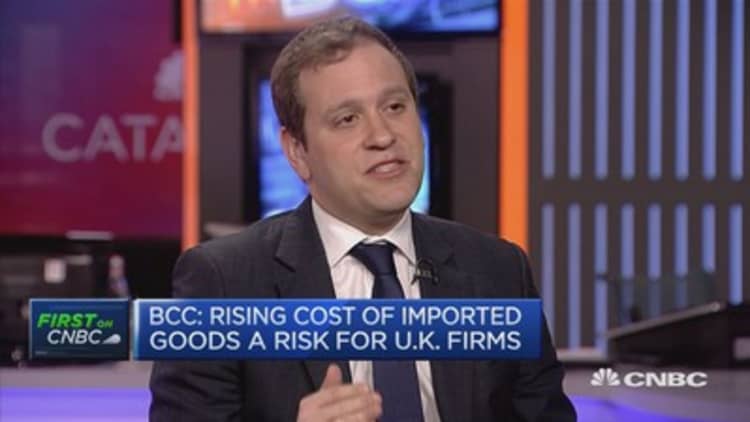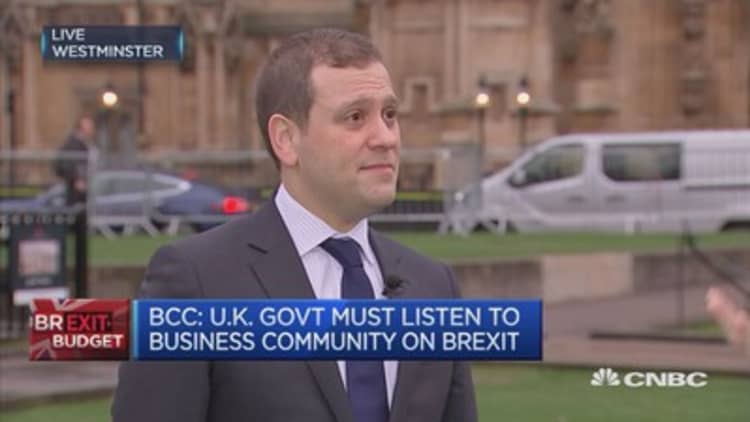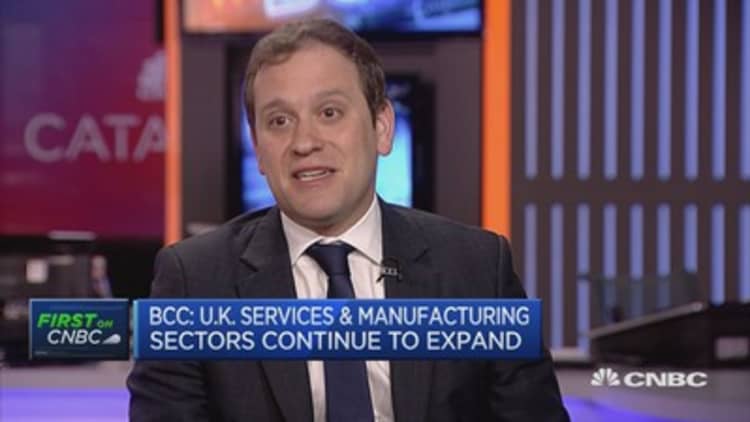
British manufacturers reported the fastest export growth in more than two years in early 2017 and the services sector also recovered to rack up its strongest sales growth since last June's Brexit vote, a business survey showed on Thursday.
The British Chambers of Commerce, which runs Britain's largest quarterly private-sector business survey, said firms reported a robust short-run outlook.
But there was much more uncertainty about the medium term as well as fears of sharply rising costs.
Britain's economy bucked most economists' expectations that it would slow sharply immediately after the vote to leave the European Union. Exporters have been in a positive mood helped by a recovering global economy and a fall in the value of sterling.
However, growth is expected to weaken this year as consumers - the mainstay of last year's expansion - come under pressure from higher inflation after sterling's post-referendum tumble.
"Many firms tell us their short-term expectations are strong, but that the medium-term picture is far from clear," said Adam Marshall, the BCC's director-general.

A similar message came from smaller companies, whose morale rose to its highest since late 2015, according to a survey also released on Thursday by the Federation of Small Businesses.
"We cannot rely in the long term on the boost that exporters have received from a weak pound," FSB chairman Mike Cherry said.
The FSB said a quarter of small businesses would be deterred from exporting to the EU if they faced any tariffs after Britain leaves the bloc in 2019.
A separate survey by market research company Nielsen, conducted after Prime Minister Theresa May formally started the clock on Brexit talks on March 29, showed consumer confidence was stable.
But worries were growing about rising prices - especially among people who had voted to leave the EU.

"Although immigration concerns have dropped, Leavers are starting to worry more about everyday matters, particularly rising utility bills and food prices," said Steve Smith, Nielsen's managing director for the United Kingdom and Ireland.
Many voters who backed Leave come from poorer households which are likely to face the biggest pinch from rising prices for food and fuel.
The BCC said raw material costs were having the biggest influence on prices since late 2011, and called inflation "a key risk to the UK's growth prospects".
Official data on Tuesday showed consumer price inflation held at its highest in nearly four years at 2.3 percent in March, while the pace of factory-gate inflation barely eased from February's five-year high of 3.7 percent.
Nonetheless, confidence at services firms and manufacturers was its highest since the first half of 2016, the BCC said.
Services companies, which make up the overwhelming majority of Britain's private-sector economy, reported the fastest growth in domestic and overseas sales since June's referendum.
Manufacturers enjoyed the most rapid domestic sales growth since the third quarter of 2015, while export sales grew at the quickest pace since the final three months of 2014.
The BCC survey was based on responses from more than 7,300 firms polled between Feb. 20 and March 13. The FSB study was based on 1,245 firms contacted in January and February.


